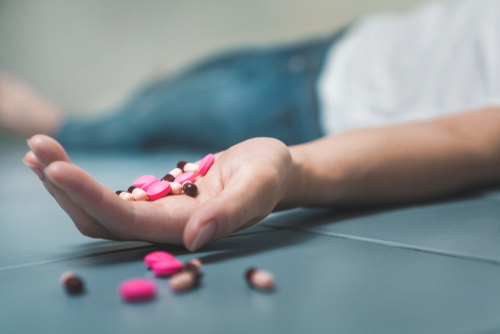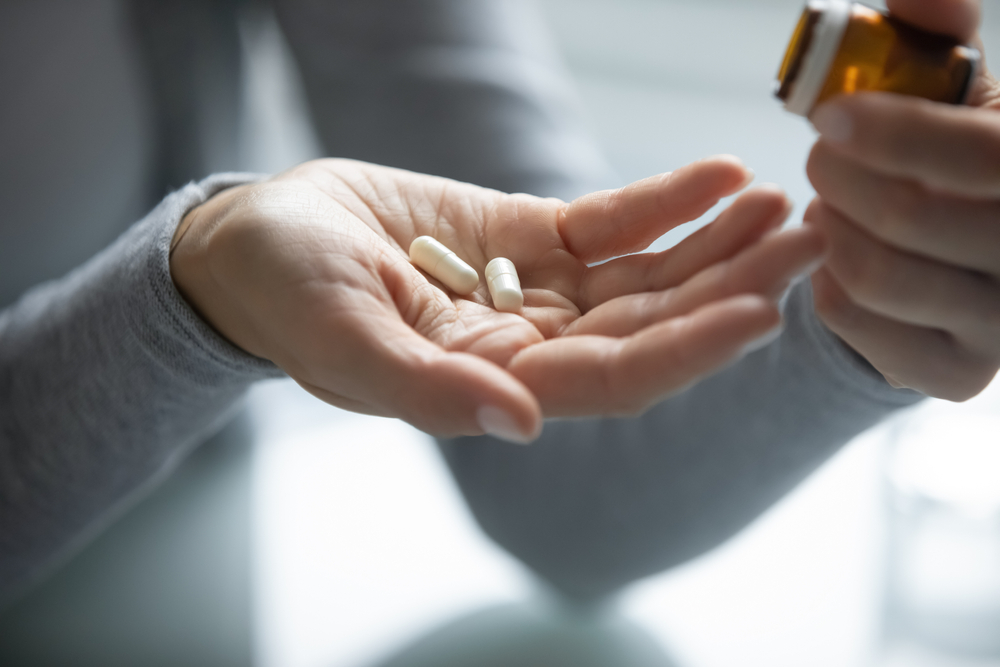Why Am I Not Getting High? How Your Body is Building Tolerance
If you have been using drugs for a prolonged amount of time, you may have noticed that the drug’s effects have dwindled. You may ask, “Why am I not getting high?” and take larger doses to feel the same effects as before. This can be a sign that your body has built a tolerance to the drug. Understanding how your body builds tolerance is essential in preventing an accidental overdose and ensuring low tolerance levels.
In this article, we will discuss drug tolerance, how tolerance develops, common substances encountered with drug tolerance, and how to manage and prevent tolerance buildup.

What is Drug Tolerance?
Drug tolerance is a physiological response that occurs when the brain becomes less sensitive to the effects of a drug over time. In simpler terms, the same dose of a drug that once produced a noticeable effect no longer has the same impact. These diminished effects typically occur after prolonged and chronic use of the drug, causing the receptors in the brain to lose sensitivity to the drug.
While an individual can develop a tolerance to a drug, it does not mean they have an addiction. It’s important to recognize these differences as they affect an individual differently.
Tolerance vs. Dependence vs. Addiction
It’s common to hear the terms ‘tolerance,’ ‘dependence,’ and ‘addiction’ interchangeably. However, each term describes different conditions. Since we’ve already discussed what drug tolerance is, we can focus on the differences between dependence and addiction.
Drug dependence occurs when an individual’s body cannot function without substances. This typically happens when someone has been taking the same drug for a prolonged amount of time, and once they stop taking the drug, they can experience withdrawal symptoms. It’s important to note that an individual can have a dependency on a drug but not be addicted.
On the other hand, addiction is a psychological condition where an individual loses control over their drug use and involves cravings and drug-seeking behavior. While there are similarities to tolerance and dependence, the development of addiction is associated with changes in neural pathways and can be caused by genetics.
Read more about the stages of addiction here.
How Does Tolerance Develop?
The development of tolerance can depend on a variety of factors. These factors can include the type of drug, the frequency of use, the dosage, and genetics. On top of these factors, the body develops tolerance through two different kinds of mechanisms: pharmacokinetic and pharmacodynamic.
- Pharmacokinetic Tolerance: Pharmacokinetic tolerance refers to changes in how the body processes and eliminates the drugs in your system. This kind of tolerance can lead to an increased metabolism resulting in faster drug breakdown. It can also make the body less efficient in absorbing the drug.
- Pharmacodynamic Tolerance: Pharmacodynamic tolerance refers to changes in the body’s response to the drugs down to the molecular levels. Continuous exposure to drugs leads to downregulation of the drug receptors in the brain, leading to a decrease in the drug’s effectiveness.

The Most Common Substances for Drug Tolerance
Drug tolerance can occur in almost any type of drug if taken for an extended period of time. However, some substances are more commonly known for their relation to tolerance than others. Some of the most common substances are cannabis, opioids, and alcohol.
Cannabis/THC Tolerance
Cannabis tolerance refers to when regular and prolonged use of cannabis leads to a diminished response to its effects. Initially, when an individual starts using cannabis, they may experience intense euphoria, relaxation, altered perception, and other psychoactive effects. However, over time, the body adapts to the presence of THC (delta-9-tetrahydrocannabinol), the primary psychoactive compound in cannabis, resulting in reduced sensitivity to its effects.
As tolerance develops, individuals may find that they need to consume higher doses of cannabis to achieve the desired effects. This can have implications for cannabis users as it may lead to increased marijuana use. Taking breaks from marijuana use, also known as tolerance breaks or t-breaks, can reset tolerance levels and allow the body to regain the sensitivity lost.
Opioid Tolerance
Opioid tolerance results from a faster breakdown of the opioid in the liver and decreased opioid receptors in the brain. Opioids are a type of drugs typically used to alleviate chronic pain and have the potential for addiction. Prolonged use of opioids can lead to a tolerance buildup, requiring higher doses to achieve the same level of pain relief. However, these high doses can increase the risk of hazardous side effects and the risk of opioid overdose. Because of this, the opioid dosage is carefully monitored by medical professionals to ensure proper usage is occurring.
Alcohol Tolerance
When someone starts drinking alcohol, even small amounts can produce noticeable effects such as relaxation, lowered inhibitions, and impaired coordination. However, with continued alcohol consumption, the body adapts to the presence of alcohol, developing alcohol tolerance. As this tolerance develops, individuals may need to consume larger amounts of alcohol to achieve the same level of intoxication as before. Like opioids, this occurs due to a faster breakdown of the alcohol and a change in the sensitivity of neurotransmitters.
Read more about the top 5 most addictive drugs here.
Managing and Preventing Tolerance
It may seem like developing a tolerance to drugs is something that is inevitable. However, there are strategies you can use to manage and prevent tolerance from occurring. This can be challenging, especially if you have already developed a tolerance. Still, by doing so, you can significantly reduce any potential side effects of tolerance and prevent it from becoming an addiction. Some strategies that can be effective are:
- Rotation of Substances: Having a rotation of substances ensures that your body does not lose its sensitivity to the drug, making it less likely to develop a tolerance. By rotating out the substances, you are effectively managing and preventing a tolerance from developing.
- Avoid Polysubstance Use: The use of multiple drugs at once can increase the risk of developing tolerance. Mixing substances can lead to potentially dangerous interactions and an accelerated tolerance.
- Dose Reduction: By using smaller doses or spacing out usage, the body is exposed to lower levels of the substance, slowing down the breakdown process and reducing tolerance.
- Tolerance Breaks: Taking regular breaks from the drugs allows the body to regain the sensitivity lost and recover. This can minimize tolerance, but you can read more about tolerance breaks below.

What is a Tolerance Break?
While we briefly mentioned a tolerance break in a previous section, it is crucial to understand what a tolerance break can do for you.
During a tolerance break, the body goes through a period of readjustment. The receptors in the brain that have become desensitized or downregulated due to the substance start to return to normal. This process can take some time as it depends on the substance used, the individual, and the tolerance level. Typical tolerance breaks can last from a few days to several weeks.
Many individuals may struggle during a tolerance break due to intense cravings. However, focusing on the positive effects of abstaining from drugs is important. Some of these effects can include reduced tolerance, improved overall wellness, and a reduction of risks.
Contact Oasis Recovery Center for Drug Addiction Treatment
Are you continuously using more of a substance to achieve the same effects? Do you feel as though the dosage of drugs is not enough for you? If so, you may be experiencing symptoms of drug addiction.
At Oasis Recovery Center, we are dedicated to providing drug addiction treatment services to those struggling. Our services offer a deeply transformative process where we will tackle every aspect of addiction with our clients. We provide holistic, dynamic, and individualized treatment programs to fit every client’s unique needs and provide a space to discover their oasis in recovery.
If you or a loved one are experiencing drug addiction or substance abuse, contact us today to learn more about our programs. Oasis is here to guide you on your path to recovery.









